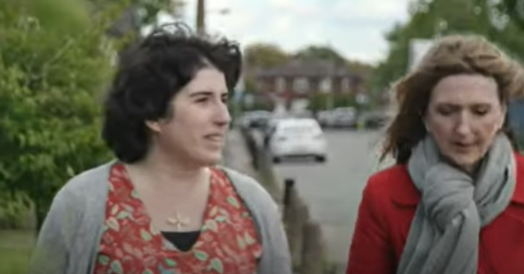Dr. Rachel Pistol, Research Associate at the Department of Digital Humanities and UK National Coordinator of the European Holocaust Research Infrastructure (EHRI) has contributed to the latest series of Channel 5’s “No Place Like Home”.
In the episode, Rachel discusses Second World War internment camp, Warth Mills, in Bury, as Journalist and News Broadcaster Victoria Derbyshire discovers more about the historical origins of her hometown, Greater Manchester.
As Rachel says:
In May 1940 there was a real fear Britain would be invaded and their could be spies and saboteurs hiding in the UK. This led to calls for mass internment and up to 28,000 Germans, Austrians and Italians were rounded up. There wasn’t enough accommodation to house all these individuals so temporary camps were created including Warth Mills, which was by far the worst of all the camps.
Many internees were sent to Canada and Australia but sadly the second ship to set sail, the Arandora Star was torpedoed and sank with the loss of over 700 lives. Many of the men on board the Arandora Star endured the terrible conditions at Warth Mills before setting sail on that fateful journey. A memorial now stands at the site to commemorate this tragic loss.
Victoria Derbyshire commented:
They were people who had escaped persecution in their own country, come here for asylum, and then suddenly they end being looked at in a different way and they’re not refugees any more they’re people to be suspected as spies…it’s really distressing.

